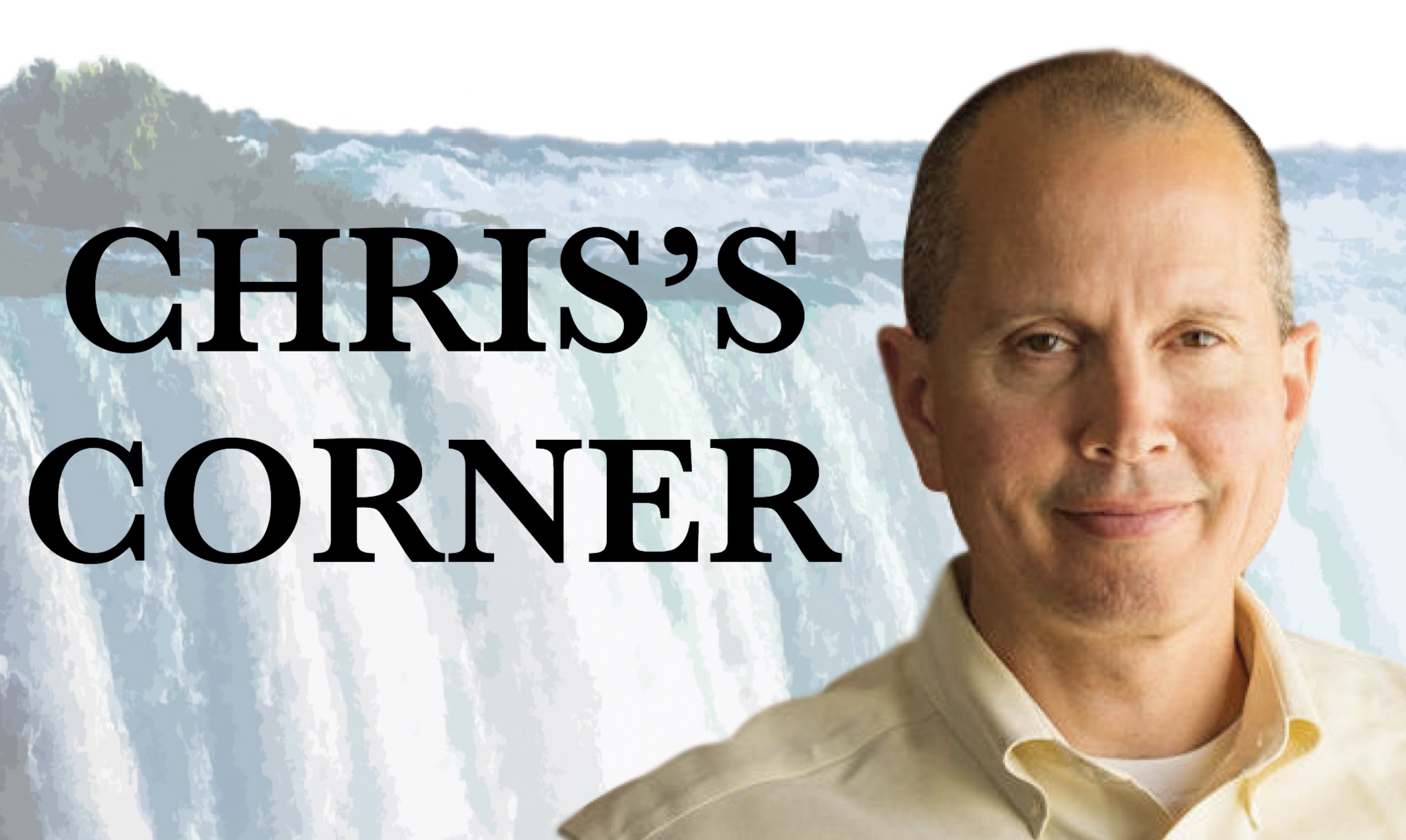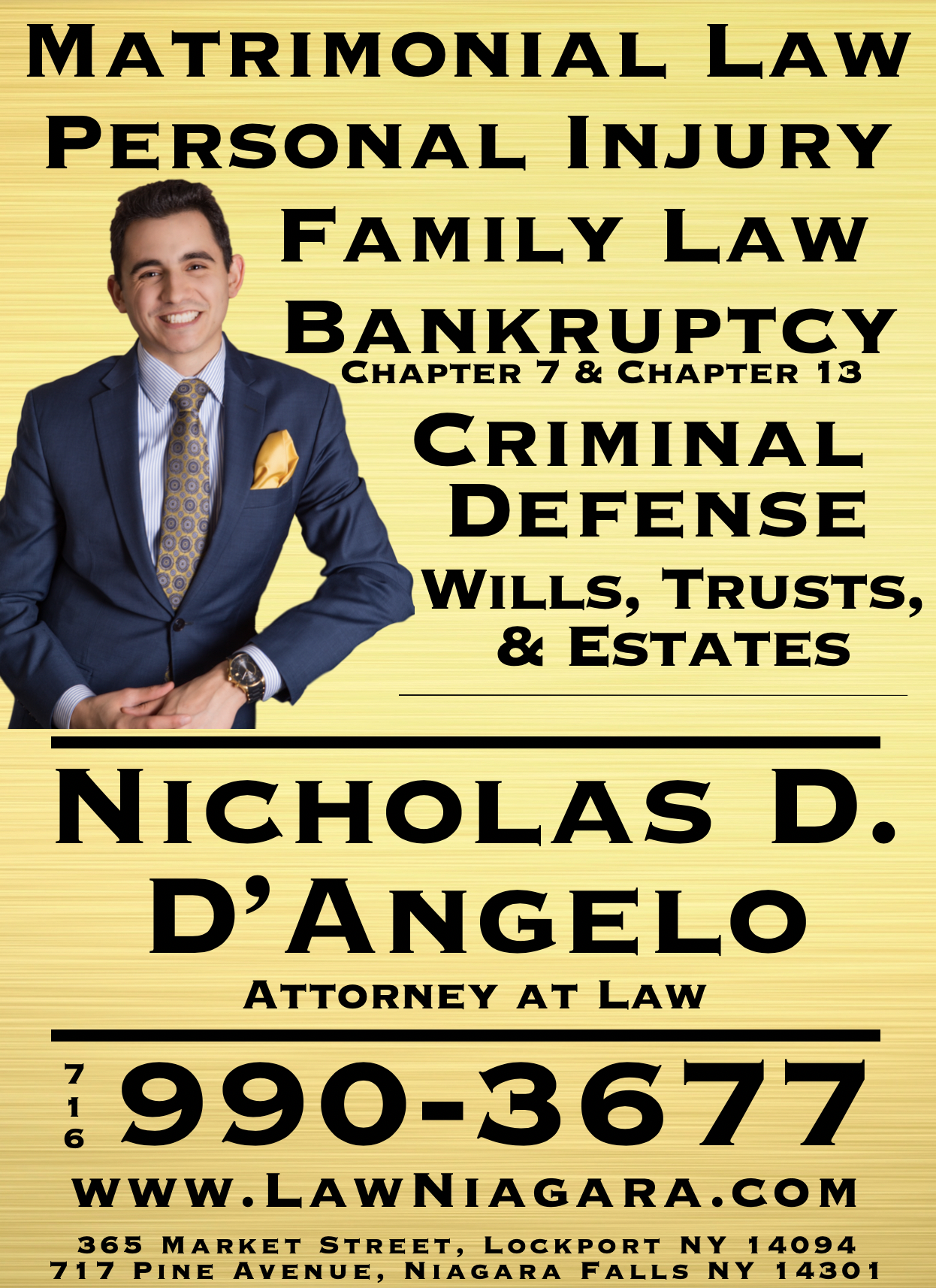Please click the link below to subscribe to a FREE PDF version of each print edition of the Niagara Reporter
http://eepurl.com/dnsYM9

By: Chris Voccio
Niagara Falls City Councilman
Let me reiterate that I am not anti-union, nor am I anti-public employee. City employees work hard and deserve respect. As do their union representatives.
I have written columns that have pointed out that city government has a spending problem, and 80% of the city’s budget relates to personnel.
I have also pointed out how public employee unions, unlike private sector unions, enjoy a unique advantage in that they fund political campaigns of people who approve their contracts. In the private sector, that could lead to criminal indictments.
That said, I understand how some city employees, understandably concerned about their jobs, might not like my writings or my role as a taxpayer watchdog. I get it. But if the city is going to get out of this fiscal mess, we need to embrace the concept of shared sacrifice.
One of the arguments you’ll hear from city employees is, “but I’m a taxpayer too.” Of course.
But my role as a City Councilman is to watch out for citizens, for taxpayers. If you also happen to work for the city, my job is to represent you as a citizen, and as a taxpayer. But it’s someone else’s job to represent you when it comes to your employment. That’s the job of a union representative, not a City Councilman.
Let’s take two neighbors. They both live on the same street, in comparable homes. They both pay similar property taxes.
One of them works for the city, in job that pays $50,000. The other works in a comparable job in the private sector, making $40,000. The city worker has a gold-plated health insurance plan worth $24,000 per year and contributes nothing towards the monthly premium. The private sector worker has a so-so health insurance plan worth $10,000 and contributes 28% (I believe the national average) towards the premiums. The city employee also has a taxpayer guaranteed pension. The private sector employee has no pension, but saves for retirement in a 401K plan.
Forgetting the pension, the public employee makes $74,000, while the private sector employee makes $47,200 (salary plus net health insurance benefits.)
Let’s say they both pay $2,000 in property taxes, and let’s say the city plans to raise property taxes by 10% to avoid layoffs. They both pay $200 more per year in property taxes. The private sector worker gets what for the additional $200? Nothing. Her services remain the same, whether she pays $2,000 or $2,200. But the public sector worker, whose job may be saved by the tax increase (or garbage fee), essentially benefits from the tax increase or garbage fee by $74,000, plus a taxpayer guaranteed pension. He pays an extra $200, but the payback from city government is huge.
We have about 45,000 city residents (we’ll know the official number after the 2020 census) and we have 500+ city employees. As a Councilman, I represent all 45,000, including the 500+ employees, or at least those that live in the city.
I don’t want to see mass layoffs. I’d rather we restructure our expenses to make government more efficient.
But when we talk about the concept of shared sacrifice, we simply can’t say that because city workers also pay property taxes, raising taxes is the shared sacrifice. Things like paying for a portion of their health insurance expense, like everyone else, and changing work rules that make government so much more expensive than it needs to be, simply must be part of the solution.
One of the problems with agreeing to such measures is that the more tenured employees are less prone to give up anything, and the less tenured employees, while they may be willing to sacrifice to save the city, don’t have as much power within their respective unions.
It’s too bad. I’m sure most city employees know there are efficiencies to be had, and they may be willing to adjust the union contracts to help reduce expenses. When the number of these employees is large enough to make an impact within their unions, we may just save the city from financial disaster.
Until then, we simply must make the difficult decisions to get our fiscal house in order.























